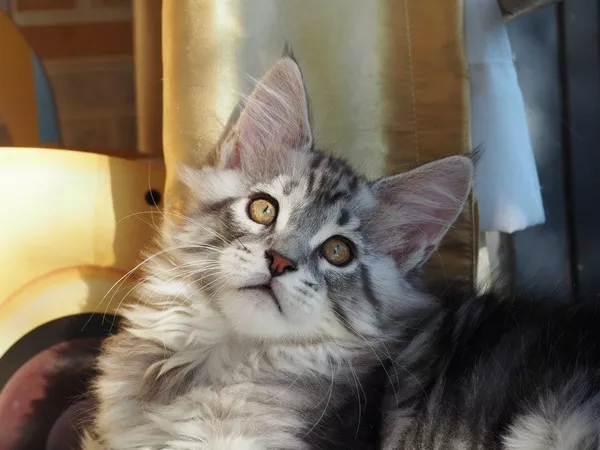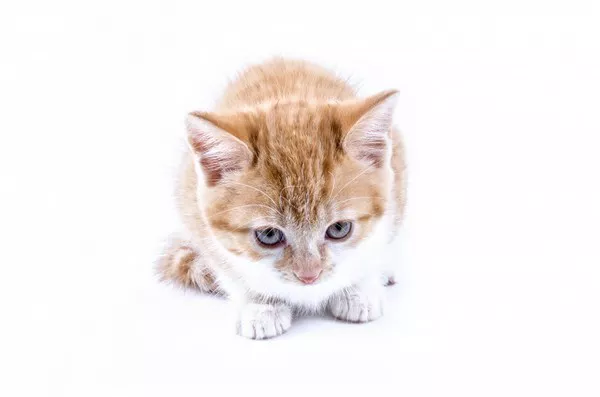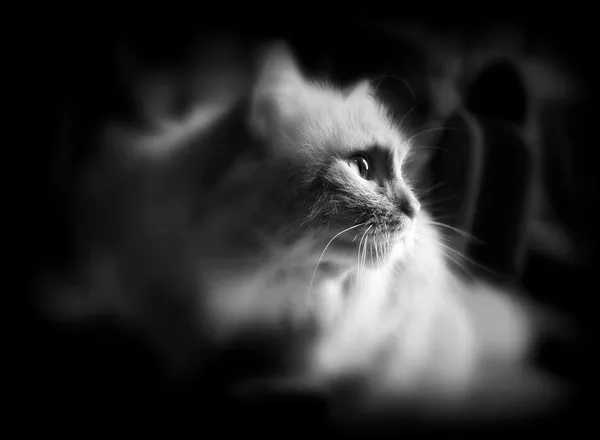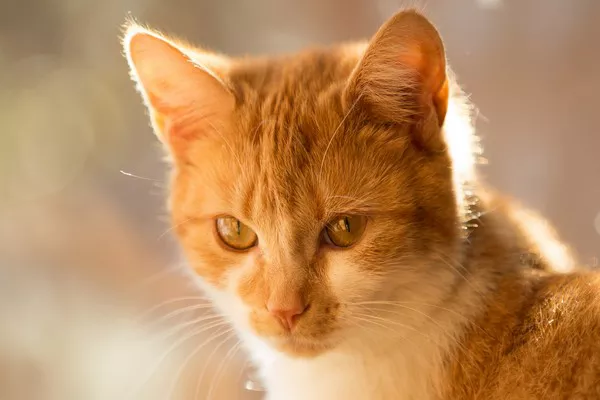Maine Coon cats are one of the most beloved and popular cat breeds, known for their large size, friendly nature, and beautiful, long, flowing coats. However, like all breeds, they are susceptible to certain health issues, many of which are genetic in nature. As responsible pet owners, it’s crucial to be aware of these potential health problems, so you can provide the best care for your Maine Coon cat. In this article, we’ll explore some of the most common genetic health issues, other health concerns, preventive measures, and signs and symptoms to watch for, helping you ensure your Maine Coon enjoys a long, healthy life.
Common Genetic Health Issues in Maine Coon Cats
While Maine Coon cats are generally known for their good health and long lifespan, there are a number of genetic health problems that owners should be aware of. These issues often stem from inherited traits and can affect their overall well-being if not properly managed. Let’s explore the most common genetic health problems in Maine Coon cats:
1. Polycystic Kidney Disease (PKD)
Polycystic Kidney Disease (PKD) is one of the most common inherited conditions seen in Maine Coons. It is a genetic disorder in which cysts (fluid-filled sacs) form within the kidneys, leading to their gradual deterioration over time.
How PKD Affects Cats: The cysts can grow larger and multiply over time, causing the kidneys to become enlarged and less effective at filtering waste from the body. This can eventually lead to kidney failure, which is life-threatening if not managed properly.
Symptoms to Watch For: Early symptoms of PKD may include increased thirst, increased urination, weight loss, and a decreased appetite. In advanced stages, the cat may show signs of kidney failure, including lethargy, vomiting, and dehydration.
Management and Treatment: While PKD cannot be cured, early diagnosis and proper management can help slow its progression. Regular veterinary check-ups, blood tests, and urine tests can help detect the disease before symptoms become severe. In some cases, kidney-friendly diets and medications can be prescribed to help manage the condition.
2. Hypertrophic Cardiomyopathy (HCM)
Hypertrophic Cardiomyopathy (HCM) is a heart condition that is particularly common in Maine Coon cats. In this condition, the heart muscle thickens (hypertrophies), making it harder for the heart to pump blood efficiently.
How HCM Affects Cats: The thickened heart muscle can lead to poor blood circulation, which may eventually cause heart failure or other serious complications, such as blood clots. In severe cases, it can be fatal if left untreated.
Symptoms to Watch For: Symptoms of HCM in Maine Coons may include lethargy, difficulty breathing, rapid or labored breathing, coughing, and a lack of appetite. In some cases, cats with HCM may show no symptoms until the disease is quite advanced.
Management and Treatment: There is no cure for HCM, but early detection can help manage the disease. Regular veterinary check-ups, including heart scans (echocardiograms), are essential for diagnosing HCM. Medications such as beta-blockers or ACE inhibitors may be prescribed to manage symptoms and reduce strain on the heart.
3. Hip Dysplasia
Hip dysplasia is a common musculoskeletal disorder seen in larger cat breeds, including the Maine Coon. It occurs when the hip joint doesn’t develop properly, leading to joint instability and pain.
How Hip Dysplasia Affects Cats: Over time, the abnormal development of the hip joint can lead to arthritis, pain, and difficulty walking. The condition can range from mild to severe, and in some cases, it can cause the cat to have a limp or show signs of discomfort when moving.
Symptoms to Watch For: Signs of hip dysplasia include lameness, difficulty jumping or climbing, reluctance to exercise, and an abnormal gait. Cats may also show signs of pain when their hips are touched or manipulated.
Management and Treatment: Treatment options for hip dysplasia include pain management, anti-inflammatory medications, and weight management to reduce strain on the joints. In severe cases, surgical intervention, such as hip replacement, may be necessary. Regular exercise can help maintain joint flexibility and muscle strength.
4. Spinal Muscular Atrophy (SMA)
Spinal Muscular Atrophy (SMA) is a genetic disorder that primarily affects the spinal cord and muscles of Maine Coon cats. This condition leads to the gradual loss of muscle tissue, resulting in muscle weakness and atrophy.
How SMA Affects Cats: SMA typically manifests in kittens between 3 and 4 months of age. As the condition progresses, affected cats lose the ability to walk or move normally, and the condition can be debilitating, although it is not usually painful.
Symptoms to Watch For: Early signs of SMA include difficulty walking, weak hind limbs, and muscle wasting. As the condition progresses, the cat may have trouble moving and may exhibit difficulty standing or jumping.
Management and Treatment: There is no cure for SMA, but supportive care can help manage the symptoms. Regular veterinary check-ups can help monitor the condition, and affected cats may benefit from physical therapy to maintain muscle strength.
Other Health Concerns for Maine Coon Cats
In addition to the genetic health issues mentioned above, Maine Coon cats are also prone to several other health concerns. These conditions may not be inherited but can still affect the overall health and well-being of your Maine Coon.
1. Obesity
Maine Coon cats are known for their large size and robust build, but this can sometimes make it harder to monitor their weight. They are prone to becoming overweight or obese if their diet is not carefully managed.
Why Obesity is a Concern: Obesity can lead to a number of health issues, including diabetes, arthritis, and heart problems. It can also shorten your cat’s lifespan and reduce its quality of life.
Preventive Measures: To prevent obesity, ensure your Maine Coon is fed a balanced diet with appropriate portion sizes. Regular exercise, including interactive play and exercise toys, is also essential to maintain a healthy weight.
2. Dental Disease
Dental disease is common in cats of all breeds, including Maine Coons. Poor oral hygiene can lead to plaque buildup, gingivitis, and periodontal disease, which can cause pain, tooth loss, and other health complications.
Symptoms to Watch For: Cats with dental issues may have bad breath, difficulty eating, drooling, or inflamed gums. In more severe cases, the cat may avoid chewing or may have visible plaque on its teeth.
Preventive Measures: Regular dental check-ups and cleanings are essential for maintaining good oral health. Brushing your cat’s teeth at home with cat-safe toothpaste, providing dental treats, and offering dental toys can help prevent plaque buildup.
3. Patellar Luxation
Patellar luxation is a condition in which the kneecap (patella) becomes displaced from its normal position. This can cause pain, lameness, and difficulty walking.
Symptoms to Watch For: Cats with patellar luxation may limp, have trouble standing or walking, or show signs of discomfort when moving. In some cases, the kneecap may appear to “pop” in and out of place.
Management and Treatment: In mild cases, patellar luxation may not require treatment, but more severe cases may require surgery to realign the kneecap and improve mobility.
4. Pyruvate Kinase Deficiency (PKD)
Pyruvate Kinase Deficiency (PKD) is a rare blood disorder that affects red blood cell production. Maine Coons can be carriers of this condition, and while it is not always immediately symptomatic, it can lead to anemia and other health issues over time.
Symptoms to Watch For: Symptoms of PKD include lethargy, pale gums, and weakness. If your cat exhibits signs of anemia, a veterinary blood test can confirm the presence of PKD.
Management and Treatment: There is no cure for PKD, but supportive care can help manage the symptoms. Blood transfusions may be needed in severe cases of anemia.
Preventive Measures to Ensure Cat Health
Taking a proactive approach to your Maine Coon’s health can help prevent or manage many of the conditions outlined above. Here are some preventive measures to consider:
1. Regular Veterinary Check-Ups
Regular vet visits are essential for maintaining your cat’s health and detecting any potential issues early. Annual check-ups should include a thorough physical exam, vaccinations, dental check-ups, and blood tests to monitor overall health.
2. Healthy Diet
A balanced, nutrient-rich diet is essential for maintaining your Maine Coon’s health. Ensure that your cat receives high-quality food appropriate for its age and size, and consult your vet for advice on portion control and specific dietary needs.
3. Exercise and Weight Management
Regular exercise helps maintain a healthy weight and prevents obesity-related health issues. Provide opportunities for your cat to engage in physical activities, such as interactive play, climbing, and exploration.
Signs and Symptoms to Watch For
Being aware of the signs and symptoms of common health problems is key to maintaining your Maine Coon’s well-being. Here are some red flags to watch for:
Behavioral Changes: Pay attention to changes in activity levels, signs of pain or discomfort, or reluctance to move.
Physical Changes: Look for lumps, bumps, changes in coat condition, difficulty breathing, or unexplained weight loss.
When to Seek Veterinary Care
If your Maine Coon exhibits any of the following symptoms, it’s important to seek immediate veterinary care:
- Signs of severe pain or discomfort
- Difficulty breathing or excessive panting
- Sudden weight loss or appetite changes
- Vomiting or diarrhea lasting more than a day
- Any unusual behaviors or physical changes that concern you
Conclusion
Maine Coon cats are a delightful breed, but they do have specific health concerns that potential owners should be aware of. Understanding common genetic health issues, other health concerns, and preventive measures can help ensure your cat lives a long, happy, and healthy life. Regular veterinary check-ups, a balanced diet, exercise, and being vigilant for signs of health problems are all critical aspects of responsible cat ownership. By being informed and proactive, you can contribute significantly to your Maine Coon’s overall cat health and happiness.
Related Topics



























